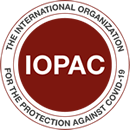Global partners in the fight to end tuberculosis (TB) including the World Health Organization (WHO), UNICEF, UNITAID, US Agency for International Development (USAID), the Global Fund to Fight AIDS, Tuberculosis and Malaria, Stop TB Partnership, The Union, KNCV, European Respiratory Society and IAS, came together today to release a joint Call to Action to scale up access to TB preventive treatment. This follows the release of new WHO guidelines in March to help countries accelerate efforts to stop people with TB infection becoming sick with TB by giving them preventive treatment. A quarter of the world‘s population is estimated to have TB infection, and are at greater risk of developing TB disease, especially those with weakened immunity.“This Call to Action comes at a vital time, as countries are putting in place measures to ensure continuity of prevention and care for those affected by TB and other diseases, in tandem with efforts to contain the COVID-19 pandemic,” said Dr Tereza Kasaeva, Director of the WHO Global TB Programme. “Ensuring access to TB preventive treatment will not only protect those infected from becoming ill with TB disease but also cut down on the risk of transmission in the community, saving lives. We need to unite forces to support countries in effectively rolling out TB preventive treatment”.Although some progress has been made towards scaling up access to TB preventive treatment and reaching the targets set at the UN high-level meeting on TB in 2018, a massive acceleration of efforts is required. To date only a fraction of the UN high-level meeting target of reaching at least 30 million people with TB preventive treatment including 24 million contacts of people with active TB and 6 million people living with HIV has been reached, with countries putting less than 430 000 household contacts and 1.8 million people living with HIV on TB preventive treatment in 2018.This call to action emphasizes that countries, partners, donors and communities should work together to overcome the main barriers standing in the way of global scale-up in TB preventive treatment by: ensuring that all TB programmes aiming to end or eliminate TB include TB preventive treatment as an integral part of a comprehensive strategyadvocating strongly and communicating widely for TB preventive treatment scale-upstrengthening contact investigation in the community and in households of people with active TB especially in the current context of the COVID-19 pandemicinitiating contacts of all ages on TB preventive treatment after TB disease is ruled outexpanding TB preventive treatment in HIV services and in facilities caring for other people eligible for itdeveloping capacity to test for TB infection and to exclude TB diseaseproviding better tolerated and shorter TB preventive treatment options on a large scaleensuring adherence and completion of the full course of TB preventive treatmentcollecting data on contact investigation, and the initiation and completion of TB preventive treatment to monitor programme performanceThe current COVID-19 crisis will further impact efforts to scale up TB prevention and care worldwide, including the roll-out of TB preventive treatment. Nonetheless, TB programmes should continue to scale up TB services and seek synergies when measures to combat COVID-19 are implemented. People who are confined at home due to COVID-19 may be more exposed to TB in their household, making it more important for contact investigation to target both conditions and to expand massively the coverage of TB preventive treatment among contacts.The Call is primarily addressed to programme managers and technical agencies helping them to revise their strategies and prepare funding proposals. This call stresses the specific need to strengthen contact investigation, a key activity that is underdeveloped in many countries and where a huge unmet need exists for TB preventive action. This does not diminish the importance of ensuring good coverage among people living with HIV and others who could benefit from TB preventive treatment.
Global partners issue Call to Action to overcome barriers to scale up TB preventive treatment
More from All WHO newsMore posts in All WHO news »
- Governments near agreement on package of amendments to the International Health Regulations (2005)
- WHO and France convene high-level meeting to defeat meningitis
- WHO reports widespread overuse of antibiotics in patients hospitalized with COVID-19
- Spain’s Secretary of State for Health discusses health priorities with WHO
